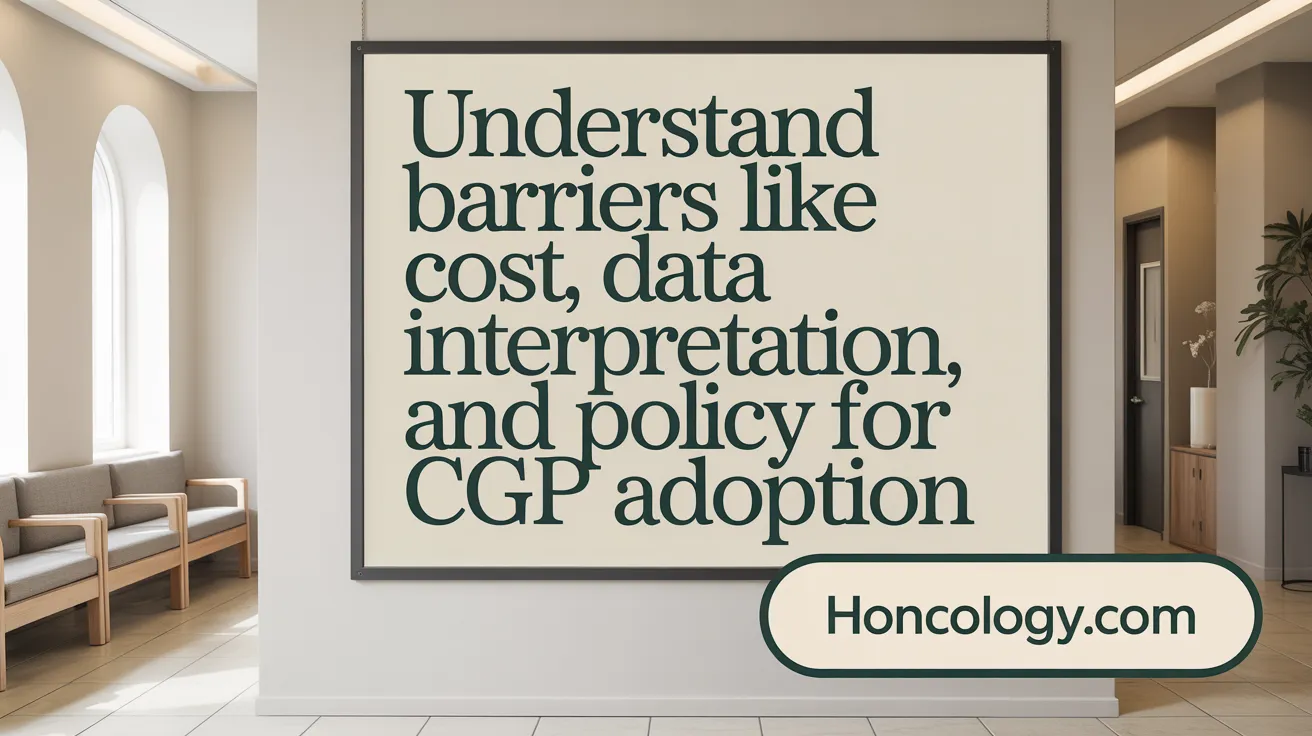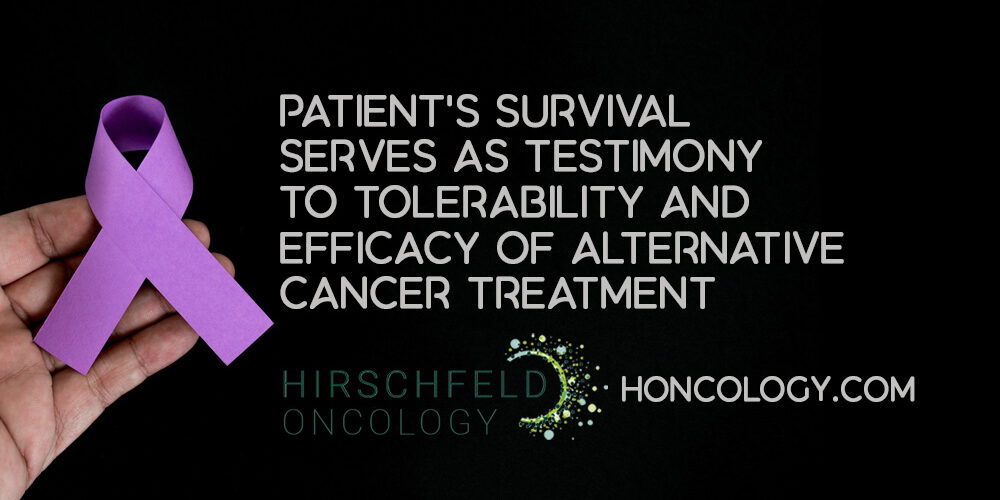A New Era in Cancer Treatment: The Promise of Genomic Profiling
Fundamentals and importance of genomic profiling in oncology
Genomic profiling has become an essential tool in modern cancer care. It involves analyzing a tumor's genetic makeup to identify mutations and alterations driving cancer growth. By doing so, it helps clinicians tailor treatments to a patient's unique cancer profile, improving the effectiveness of therapies and minimizing unnecessary side effects.
This approach allows identification of biomarkers that predict response to targeted therapies and immunotherapies, guiding personalized treatment plans. Comprehensive genomic profiling (CGP) examines hundreds of cancer-related genes simultaneously, providing a detailed molecular landscape of the tumor. This enables detection of actionable mutations, tumor mutational burden (TMB), microsatellite instability (MSI), and other genomic signatures crucial for decision-making.
Role of next-generation sequencing (NGS) technologies in cancer care
Next-generation sequencing (NGS) technologies are at the heart of genomic profiling, allowing simultaneous analysis of numerous genes with high sensitivity and speed. NGS-based assays consolidate multiple genetic tests into one, conserving precious tumor tissue samples and reducing time to results.
NGS can analyze both tumor DNA and RNA, detecting a range of alterations including single nucleotide variants, insertions or deletions, copy number changes, and gene fusions. Additionally, liquid biopsies using circulating tumor DNA (ctDNA) leverage NGS for non-invasive profiling when tissue samples are limited.
The use of NGS enhances precision oncology by revealing detailed tumor biology, facilitating targeted treatment selection, and expanding enrollment opportunities in clinical trials. As technology advances, NGS continues to make genomic profiling faster, more affordable, and more accurate, ushering in a new era of personalized cancer treatment.
Understanding Comprehensive Genomic Profiling (CGP) and Its Clinical Foundations

What is Comprehensive Genomic Profiling (CGP)?
Comprehensive Genomic Profiling (CGP) is an advanced diagnostic test that uses next-generation sequencing (NGS) technologies to analyze hundreds of cancer-related genes simultaneously. This approach helps identify a wide array of genetic changes in tumors, providing a detailed picture of their molecular makeup. CGP assesses not only DNA but also RNA components, enhancing its ability to detect diverse genomic alterations.
What Types of Genomic Alterations and Signatures Does CGP Detect?
CGP identifies multiple classes of genomic abnormalities including single nucleotide variants (SNVs), insertions and deletions (indels), copy number variants (CNVs), gene fusions, and splice variants. Additionally, it evaluates key genomic signatures such as tumor mutational burden (TMB), microsatellite instability (MSI), and homologous recombination deficiency (HRD), which are critical markers in precision oncology.
Why Use Comprehensive Panels Over Traditional or Single-Gene Testing?
Compared to single-gene tests or smaller panels, CGP offers much broader coverage. It consolidates testing into one multiplex assay, which saves time, reduces the need to use multiple tissue samples, and increases the chance of identifying actionable mutations. This is especially important for cancers with complex or rare mutations, refractory tumors, and when tissue availability is limited. For more on the benefits of broad molecular profiling, see Foundation Medicine's overview and Act Genomics insights.
What Technologies and Assays Are Commonly Used for CGP?
NGS platforms are central to CGP, employing targeted-panel sequencing that typically covers between 11 to over 500 genes depending on the test. The use of both DNA- and RNA-based assays enhances detection sensitivity for gene fusions and alternative splicing events. Examples of widely utilized assays include TruSight Oncology 500, Oncomine Focus Assay, and Archer’s FusionPlex panels. Liquid biopsies analyzing circulating tumor DNA (ctDNA) represent a non-invasive alternative, capable of capturing tumor alterations when tissue biopsies are not feasible.
Collectively, CGP integrates comprehensive genomic data to inform personalized cancer treatments, providing a foundation for targeted therapies and clinical trial enrollment in precision oncology.
Clinical Applications of CGP: Identifying Actionable Mutations and Guiding Treatment

Detection of actionable driver mutations across various cancer types
Comprehensive Genomic Profiling (CGP) employs next-generation sequencing (NGS) technologies to detect a broad spectrum of genetic alterations in tumors, including single nucleotide variants, insertions/deletions, copy number changes, and gene fusions. Large studies report that around 49–93% of advanced cancer patients harbor actionable mutations identified through CGP, depending on the tumor type and panel size. Notable mutated genes include EGFR in lung cancer, PIK3CA in breast cancer, alterations in BRCA1/2 in ovarian, pancreatic, and prostate cancers, as well as NTRK fusions across various rare and common cancers.
How CGP informs targeted therapies and immunotherapy selection
By revealing specific genomic alterations, CGP guides precision oncology by matching patients to targeted therapies designed to inhibit these cancer drivers. For example, EGFR mutations allow treatment with EGFR inhibitors, while BRCA1/2 mutations can indicate sensitivity to PARP inhibitors. Moreover, CGP assesses biomarkers such as tumor mutational burden (TMB) and microsatellite instability (MSI), which predict response to immunotherapies like immune checkpoint inhibitors. High TMB tumors often respond better to immunotherapy, and detection of MSI-high status supports pembrolizumab use.
Examples of important biomarkers such as EGFR, PIK3CA, BRCA1/2, and NTRK
- EGFR: Commonly mutated in non-small cell lung cancer, guiding EGFR tyrosine kinase inhibitor therapy.
- PIK3CA: Frequently mutated in breast cancer; PIK3CA inhibitors improve outcomes in hormone receptor-positive disease.
- BRCA1/2: Germline and somatic mutations signify benefit from PARP inhibitors in several tumor types.
- NTRK fusions: Rare but actionable across multiple cancers, targeted effectively with TRK inhibitors.
Role of tumor mutational burden (TMB) and microsatellite instability (MSI) as predictive markers
TMB quantifies mutations per megabase of tumor DNA and serves as a biomarker for immunotherapy efficacy. High TMB correlates with better responses to immune checkpoint blockade. Likewise, MSI-high tumors, due to defective DNA mismatch repair, exhibit genomic instability that increases neoantigen load, rendering them sensitive to immunotherapy. CGP panels routinely include TMB and MSI assessments, facilitating personalized immunotherapy decisions.
Clinical trial enrollment facilitated by CGP findings
CGP identifies patients with actionable genomic alterations eligible for biomarker-driven clinical trials, advancing precision medicine research. Molecular Tumor Boards (MTBs) use CGP results to recommend trial participation when standard therapies are exhausted. Such enrollment increases treatment options and contributes to evolving therapeutic standards, especially for rare or refractory cancers.
Implementing CGP in Routine Oncology Practice: Workflow and Multidisciplinary Teams

What is the typical workflow for CGP including sample types, sequencing, and data analysis?
Comprehensive Genomic Profiling (CGP) leverages next-generation sequencing (NGS) technologies to analyze tumor DNA and RNA from various sample types. Commonly used materials include formalin-fixed paraffin-embedded ([FFPE] tissue, cytological specimens, and non-invasive sources such as liquid biopsies analyzing circulating tumor DNA (ctDNA) from plasma). Samples undergo strict quality control before sequencing, often employing assays like TruSight Oncology 500, Oncomine Focus Assay, or Archer’s FusionPlex. These panels can cover hundreds of cancer-related genes, detecting mutations, copy number alterations, gene fusions, and genomic signatures including tumor mutational burden (TMB) and microsatellite instability (MSI). Variant classification follows established standards, such as the AMP/ASCO/CAP system, ensuring consistent interpretation of clinically relevant mutations.
What is the role and composition of Molecular Tumor Boards (MTBs) in interpreting results?
Molecular Tumor Boards (MTBs) are multidisciplinary teams crucial for evaluating complex CGP findings. MTBs typically include oncologists, pathologists, molecular biologists, genetic counselors, and bioinformaticians. Their collaborative discussions focus on interpreting genomic data, correlating findings with clinical context, and recommending targeted treatment options or enrollment in clinical trials. MTBs also address cases with variants of uncertain significance, balancing evidence for off-label use or novel therapies. This team-based approach enhances personalized treatment planning and has been shown to improve clinical outcomes.
How is CGP integrated with pathology and clinical information?
Integration of CGP with histopathology and clinical data ensures precise tumor characterization. Dedicated pathologists review tissue samples, digitalize hematoxylin and eosin (H&E) slides for morphology assessment, and coordinate sample processing. Genomic findings are correlated with tumor histology, staging, and patient history to refine diagnosis, predict treatment responses, and identify prognostic markers. Electronic health records (EHRs) increasingly incorporate genomic data to facilitate clinical decision-making and longitudinal patient management.
Why are multidisciplinary teams and clinician education important in genomic medicine?
Effective use of CGP in oncology requires multidisciplinary collaboration across specialties. Clinician education is essential to understand genomic concepts, interpret complex test results, and communicate findings to patients. Education also addresses challenges related to secondary germline findings and evolving therapeutic options. Multidisciplinary teams including advanced practice providers (APPs) in genomic oncology, genetic counselors, and oncologists help optimize treatment selection, foster shared decision-making, and ensure comprehensive patient care in the era of precision oncology.
Emerging Technologies and Liquid Biopsies: Expanding Access and Reducing Invasiveness

Use of circulating tumor DNA (ctDNA) for liquid biopsies as an alternative to tissue samples
Liquid biopsies analyzing circulating tumor DNA (ctDNA) analyze circulating tumor DNA (ctDNA) found in blood plasma and provide a less invasive way to perform comprehensive genomic profiling (CGP), especially when tissue biopsy samples are limited or unavailable. This method offers a rapid option for detecting tumor mutations and monitoring disease progression without the procedural risks associated with traditional biopsies. ctDNA testing has demonstrated high sensitivity for identifying oncogenic driver mutations and can reflect tumor heterogeneity (liquid biopsy as alternative strategy).
Benefits and limitations of liquid biopsies in genomic testing
The key benefits of liquid biopsies include convenience, reduced patient discomfort, and the ability to capture dynamic changes in tumor genetics over time. They also facilitate frequent monitoring during treatment. However, limitations include variable ctDNA concentration affected by tumor burden and biology, potential fragmentation of ctDNA, and lower sensitivity in early-stage cancers. The interpretation of liquid biopsy results requires careful consideration alongside clinical and radiological data (Next-generation sequencing technology, Comprehensive genomic profiling).
Advancements in RNA-based assays for detecting gene fusions and splicing variants
RNA-based sequencing assays improve detection of gene fusions and alternative splicing variants crucial for many targeted therapies. These assays complement DNA-based tests by capturing fusion transcripts that might be missed otherwise, enhancing the accuracy of molecular diagnosis. Technologies such as Archer’s FusionPlex panels and TruSight Oncology kits integrate RNA analysis to ensure comprehensive variant detection, enabling better personalized cancer care (Sequencing assays: TruSight Oncology 500, Oncomine Focus, Archer FusionPlex, Next-Generation Tumor Genetic Testing).
Technological automation and digital pathology integration
Recent developments in digital pathology, including slide digitalization and semi-automated extraction of DNA/RNA, have streamlined sample processing workflows for CGP. Automated quality control and bioinformatics tools reduce turnaround times, enhance data accuracy, and support multidisciplinary molecular tumor boards (MTBs). Combined with cloud-based sequencing platforms, automation facilitates broader implementation of CGP in clinical settings, promoting faster and more reliable genomic insights for treatment decisions (Digitalization of H&E slides, DNA/RNA extraction techniques, NGS Workflow Finder for labs, Integrating cancer genomic data into EHRs.
Challenges in Widespread Adoption of Genomic Profiling in Oncology

High costs and reimbursement barriers for CGP testing
Comprehensive Genomic Profiling (CGP) faces significant hurdles due to its high costs. Many healthcare systems and insurers have not fully embraced coverage for these advanced tests, limiting patient access. For instance, despite recent reimbursement expansions like those in Taiwan National Health Insurance CGP reimbursement, cost remains a primary obstacle globally, particularly in low- and middle-income countries.
Interpretation of variants of uncertain significance (VUS) and complex genomic data
A major challenge in integrating CGP into clinical practice is deciphering complex genomic data, including Variants of Uncertain Significance (VUS). These ambiguous results complicate clinical decisions and require specialized expertise and molecular tumor boards (MTBs) to provide meaningful interpretation.
Need for high-quality data registries and standardized clinical guidelines
Successful utilization of CGP demands robust data registries to track outcomes and variant significance. However, the lack of standardized clinical guidelines to interpret diverse genomic alterations hinders uniform application, contributing to inconsistent treatment approaches (Integrating genomic testing in clinical care).
Disparities in access and the importance of policy improvements
Access to CGP is uneven, with disparities seen across geographic regions and healthcare settings. Innovative policy reforms are essential to broaden access, streamline regulatory approvals, and support infrastructure investments for wider adoption.
Education gaps among oncologists regarding genomic data interpretation
Although oncologists widely order genomic tests, many report lower confidence in interpreting CGP results and discussing complex findings like secondary germline variants. Targeted education and decision-support tools are vital to empower clinicians in leveraging genomic insights effectively.
Addressing these challenges is critical for mainstreaming genomic profiling in oncology, ensuring equitable, informed, and timely precision cancer care for all patients (Optimizing cancer patient care with CGP.
Impact on Patient Outcomes: Evidence Supporting Genomic-Guided Therapies
Improved progression-free and overall survival with CGP-guided treatment
Comprehensive genomic profiling (CGP) has been shown to significantly enhance patient outcomes by enabling targeted treatment strategies tailored to tumor-specific genetic alterations. Meta-analyses reveal that patients receiving therapies matched to their genomic profiles experience longer progression-free survival (PFS) and overall survival (OS) compared to those on non-matched regimens.
Studies demonstrating increased use of matched targeted therapies
Clinical data from various cohorts demonstrate that CGP identifies actionable mutations in 40-94% of patients with advanced cancers. This leads to increased administration of matched targeted therapies and immunotherapies, with molecular tumor boards (MTBs) playing a pivotal role in interpreting results and recommending suitable treatments. Rapid turnaround of CGP results further increases the use of genomically matched therapies.
Correlation of treatment matching scores with clinical benefits
Quantitative matching scores, which reflect how well therapies align with tumor genomic alterations, correlate positively with improved patient outcomes. Higher scores are associated with better PFS and OS, highlighting the importance of comprehensive mutation profiling and precise treatment selection as shown in clinical utility of CGP.
Examples of patients benefiting from early genomic testing
Early genomic profiling in cancers such as lung adenocarcinoma and breast cancer has informed treatment decisions, accelerating initiation of effective targeted therapies. For instance, broad genomic testing before relapse in lung cancer patients facilitates faster deployment of appropriate targeted agents, avoiding ineffective immunotherapies and reducing toxicity. Similarly, genomic profiling in breast cancer aids in personalizing treatment plans based on gene signatures, improving survival rates and reducing unnecessary chemotherapy as detailed in genomic profiling in breast cancer.
Genomic Profiling for Rare and Difficult-to-Diagnose Cancers
Role of CGP in rare cancers and cancers of unknown primary (CUP)
Comprehensive genomic profiling (CGP) plays an essential role in identifying actionable genomic alterations in rare cancers and cancers of unknown primary (CUP). These malignancies, often driven by specific gene alterations, benefit significantly from genomic data that reveal tumor biology and potential treatment targets. Studies have demonstrated that CGP identifies actionable mutations in a large subset of rare cancer patients, enabling personalized therapeutic approaches even when traditional diagnostic methods fall short.
Diagnostic recharacterization and refinement enabled by CGP
CGP has revolutionized tumor diagnosis by recharacterizing and refining initial cancer classifications. In clinical practice, cases where initial histopathologic diagnoses are inconsistent with molecular profiles can be reassessed using CGP data. For instance, rare tumors initially diagnosed without clarity have been reclassified into specific types such as non-small cell lung cancer or cholangiocarcinoma based on genomic findings. This refinement leads to more accurate disease characterization and treatment plans tailored to genetic alterations (CGP in carcinoma of unknown primary (CUP) and diagnostic recharacterization).
Access to FDA-approved tissue-agnostic therapies based on genomic biomarkers
The molecular insights from CGP facilitate access to FDA-approved tissue-agnostic therapies targeting genetic alterations like NTRK fusions, RET fusions, high microsatellite instability (MSI-H), high tumor mutational burden (TMB-H), and BRAF V600E mutations. Such therapies transcend conventional constraints tied to tumor histology, offering effective options for patients with rare cancers that harbor these biomarkers. CGP thus serves as a gateway to advanced precision therapies for difficult-to-treat malignancies (Comprehensive molecular profiling in rare cancers and tissue-agnostic therapies).
Economic and clinical advantages of universal molecular profiling in rare malignancies
Universal CGP implementation in rare cancers is clinically and economically advantageous. Early and comprehensive molecular testing streamlines diagnosis, reduces ineffective therapies, and enhances survival outcomes via targeted treatments. Economic analyses reveal cost-effectiveness by decreasing unnecessary treatments and hospitalizations. Furthermore, molecular profiling supports enrollment in clinical trials, expanding therapeutic opportunities for patients traditionally underserved by standard protocols (Value of CGP in rare cancers - economic and clinical perspectives.
In summary, CGP supports diagnosis accuracy, personalized treatment, and access to innovative therapies for rare and diagnostically challenging cancers, improving both clinical outcomes and healthcare resource utilization (Usefulness of Comprehensive Genomic Profiling in advanced cancers).
Integrating Genomic Data into Health Records and Clinical Decision Support
Challenges of incorporating complex genomic data into electronic health records (EHRs)
Integrating complex cancer genomic information into electronic health records (EHRs) poses significant challenges. Genomic data are highly detailed and voluminous, with multiple genomic alterations such as single nucleotide variants, copy number changes, and structural rearrangements. These data often come from diverse testing platforms, including next-generation sequencing (NGS) panels, and vary in format and terminology. Current EHR systems, designed primarily for traditional clinical data, lack standardized fields and frameworks to represent this complex information clearly and consistently. This leads to difficulties in storing, retrieving, and easily interpreting genomic results within routine clinical workflows (Integrating cancer genomic data into EHRs.
Importance of standardized data formats and interoperability protocols
To enable effective integration, standardized data formats and interoperability protocols are essential. Emerging frameworks like Fast Healthcare Interoperability Resources (FHIR) and SMART on FHIR offer standards to structure and exchange genomic data across different systems. These standards facilitate the transformation of raw genomic data into structured, clinically relevant information that can seamlessly integrate with patient histories and treatment records. Additionally, consistent adoption of nomenclatures such as HGVS nomenclature for variant description and guidelines from professional organizations are critical for uniform communication between laboratories, clinicians, and oncology care teams (Clinical Utility of Comprehensive Genomic Profiling).
Use of digital tools and genomic knowledge bases for variant interpretation
To interpret the complex genomic variants stored in EHRs, clinicians rely on integrated digital tools and specialized knowledge bases. Clinical decision support systems incorporate curated genomic databases such as OncoKB, My Cancer Genome, and CIViC, which provide evidence-based insights on the clinical significance of mutations and their therapeutic implications. These tools help distill vast genomic information into actionable knowledge, enabling oncologists to understand variant pathogenicity, potential drug targets, resistance mechanisms, and eligibility for clinical trials (Interpreting genomic test results.
Enhanced decision support for clinicians to tailor treatments effectively
Embedding genomic data and interpretation tools within EHRs enhances clinical decision-making, allowing for precision oncology in real time. Decision support platforms can present treatment recommendations based on a patient's unique genomic profile, highlighting targeted therapies, immunotherapy suitability, and genetic counseling needs. By integrating genomic data with clinical parameters and treatment history, such systems promote personalized therapy plans and facilitate multidisciplinary tumor board discussions (Molecular Tumor Board (MTB) role. This integration ultimately improves patient outcomes by enabling clinicians to make informed, evidence-based decisions efficiently within their existing clinical environments (Optimizing cancer patient care with CGP.
Looking Forward: The Future of Genomic Profiling in Oncology Practice
How will emerging multi-omic and spatial transcriptomic technologies enhance tumor analysis?
Future genomic profiling goes beyond DNA sequencing with the integration of multi-omic approaches in oncology that include genomics, transcriptomics, epigenomics, proteomics, and microbiomics. These comprehensive analyses provide a more detailed picture of tumor biology and its microenvironment. Spatial transcriptomics adds a layer of context by mapping gene expression within the physical architecture of the tumor tissue, revealing heterogeneity at unprecedented resolution. This integrated view helps clinicians understand diverse tumor cell populations and their interactions, improving precision in diagnostics and guiding tailored therapies.
What changes are anticipated in reimbursement and access to genomic profiling?
Expanding reimbursement policies play a crucial role in making comprehensive genomic profiling (CGP) widely accessible. For example, Taiwan's National Health Insurance CGP reimbursement now covers CGP for several cancer types, supporting over 20,000 patients annually. Broader access models aim to overcome high costs and ensure equitable use of CGP in routine oncology care. As health systems recognize the cost-effectiveness and clinical benefits of CGP, more countries and payers are expected to adopt policies that facilitate early and frequent genomic testing (Policy and technology for sustainable CGP implementation.
How will artificial intelligence and automation impact genomic data interpretation?
Artificial intelligence (AI) and automated interpretation tools are becoming indispensable for managing the complexity of genomic data. AI-driven genomic data interpretation platforms can rapidly analyze vast sequencing datasets, identify relevant variants, classify their clinical significance, and generate actionable reports. This not only reduces turnaround times but also supports clinicians who may lack genomic expertise. Integration of AI with electronic health records (EHRs) further promotes real-time decision support, enhancing precision oncology workflows.
What is the emerging role of advanced practice providers in genomic-informed oncology care?
Advanced practice providers (APPs)—including nurse practitioners, physician assistants, and clinical pharmacists—are increasingly integrated into genomic-informed cancer care teams. Given rising cancer incidence and extended survivorship, APPs help with patient counseling, genomic test consent, treatment management, and follow-up. Recent policy changes allow qualified APPs greater independence in managing genomic testing orders and trial participation, enhancing care capacity (Oncology Advanced Practice Providers (APPs) role in oncology). Their holistic and proactive approach aids in translating complex genomic information into patient-centered care, expanding the reach and efficiency of precision oncology.
Advancing Cancer Care through Genomic Profiling: A Collaborative Journey
Genomic Profiling Transforms Cancer Treatment
Comprehensive genomic profiling (CGP) has revolutionized oncology by enabling personalized cancer therapies. By analyzing hundreds of cancer-related genes in tumors through next-generation sequencing (NGS), CGP identifies actionable mutations that guide targeted treatments and immunotherapies. This has contributed to improved patient outcomes, faster treatment decisions, and expanded clinical trial access.
Importance of Multidisciplinary Collaboration
The complexity of genomic data interpretation requires collaboration across specialties. Molecular Tumor Boards (MTBs)—comprising oncologists, pathologists, geneticists, and bioinformaticians—play a critical role in integrating genomic insights into clinical practice. Their interdisciplinary approach ensures precision in diagnosis and treatment selection, helping to navigate challenges like variant interpretation and therapeutic accessibility.
Commitment to Precision Oncology
Advancing patient-centered cancer care involves continuous innovation and integration of genomic technologies. Efforts focus on expanding genomic testing availability, optimizing data management, and tailoring therapies individually. These strides demonstrate a commitment to precision oncology, aiming to improve survival and quality of life for cancer patients worldwide through a collaborative, evidence-driven approach.





.png)


.png)
.png)




